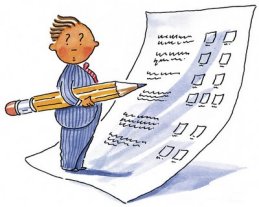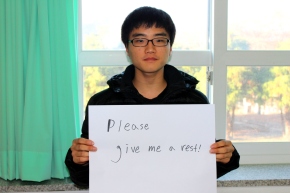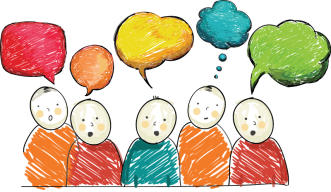Assessment always seems to be a tricky or sensitive topic to discuss as every educator, school and parent has a different opinion on assessment of children. Assessment helps an educator to:
- Identify what their children know.
- Identify children’s special needs.
- Determine appropriate placement.
- Select appropriate curricula to meet children’s individual needs.
- Refer children and their families for additional services to programs.
In my opinion if an educator wants to find out how they should measure or assess a young child they need to ask themselves the following questions first:
- Why do I need this information?
- What is the purpose of my efforts?
- Based on what I need to know, what kind of information will be helpful? Will it be test scores, observations, work found in children’s portfolios?
- How often and when do I need to collect such information, and how can I best assure the information is accurate and valid?
As a result once the educators have answered these questions they then can best decide as to how they feel a young child needs to be measured or assessed. In my experience when looking at the young child holistically, I have found the best form of assessment for young children would be informal assessment such as continuos observations because if you observe a child on a daily basis, you will get to know them as a whole, by providing activities inside and outside your classroom to develop their social, emotional, cognitive and physical development. Furthermore I believe formal assessments should be sporadic for young children to assess a child’s true ability in specific areas, for example ‘Can the child recognise their numbers?’ I enjoy using informal ways of assessment because:
- They are less stressful for young children as they often do not realize they are undergoing an assessment.
- One can receive immediate feedback which aids the educator to plan for future lessons.
- Less expensive and little planning is needed.
However, there are disadvantages to using informal assessments as they can be:
- Hindered by any hidden prejudices or stereotypes with the person administering the assessment which influences their judgement. As a result one needs to be unbiased and evaluate students on equal grounds, which is sometimes easier said than done.
- Misleading, as some children may not give one hundred percent on an informal assessment compared to if they knew the were being formally assessed.

Having worked in South Korea for two years, I was impressed as to how well educated young and old students were, yet horrified to see how informal way of assessment is overlooked and how formal assessment is continuously pushed. When I was teaching, I constantly had to give children tests to see if they understood their learning. Instead of observing, asking open-ended questions, discussions, using portfolio work as forms of assessments.
It is a well-known fact that students in South Korea, both young and old work up to thirteen hours a day, while the average high school student sleeps five and a half hours a night to make sure they have enough time to study. Young and old students finish school at around 2pm or 3pm, directly after school they would need to go to extra English classes, extra art classes, extra maths, you name it, there were extra classes for every subject. The students become extremely unhappy, overly-tired, stressed because over and above school tests they have after school tests at their extra classes. All students young and old are constantly assessed formally through class tests and examinations. As a result many South Korean students, young and old suffer physical symptoms of academic stress and the saddest part of it all, is that most children from a young age are taught from their parents and educators that academic performance is their only source of validation and self-worth. I read an article by the New York Times that around fifty-three percent of the young South Koreans in 2010 confessed to feeling suicidal because they felt inadequate in their academic performance. Imagine if that was the percentage in 2010, what is the percentage now in 2016? I am to scared to know!

I came across, a quote by Barack Obama:
“I’m calling on our nation’s governors and state education chiefs to develop standards and assessments that don’t simply measure whether students can fill in a bubble on a test, but whether they possess 21st century skills like problem-solving and critical thinking and entrepreneurship and creativity.”
This quote made me think and question my own way of assessment and that perhaps we need to consider from year to year what the world is actually expecting our children to know and have learnt!
What are your thoughts about the above statement?

References
Bowers, S. (n.d.).Assessing Young Children: What’s Old, What’s New, and Where Are We Headed? Early Childhood News. Retrieved from http://www.earlychildhoodnews.com/earlychildhood/article_view.aspx?ArticleID=210
Morrison, G.S. (2010, July 20). Why is Assessment Important? Education.com. Retrieved from http://www.education.com/reference/article/why-assessment-important/
Gundlach, M. (2015, June 21). A guide to informal assessments. Bright Hub Education. Retrieved from http://www.brighthubeducation.com/student-assessment-tools/99770-strengths-and-weaknesses-of-informal-assessments/
Koo, S.W. (2014, August 01). An Assault Upon Our Children. New York Times. Retrieved from http://www.nytimes.com/2014/08/02/opinion/sunday/south-koreas-education-system-hurts-students.html?_r=0
Hi Justine,
I really enjoyed your post, although I was saddened by the situation you describe in South Korea. The quote from Barack Obama that you included seems particularly relevant in both South Korea and the US. I agree that problem-solving and creativity are hard to measure on standardized “fill-in-the-bubble” tests. When I was in school, we were encouraged to guess on standardized questions which we didn’t know the answer to, since if we left the question blank, we would get a zero for that question, whereas if we guessed A, B, C, or D, we would have a 25% chance of getting it right. How does that measure a person’s actual knowledge? If I had no clue and happened to guess the correct response, would my score for that question be an accurate depiction of my knowledge? Of course not.
I agree that informal assessments, including observations, are the best way to assess young children. Young children do not need to experience the stress of repeated formal testing.
LikeLike
In my years of experience with assessing children, usually if they know their numbers, then they do not know their letters, and vice versa. In South Korea it sounds like they take a lot of extra things, I can imagine it would be stressful. I think if they can find a way just like with the preschool children, if they make a test fun, then the school aged children would not be so stressful. It is really sad that children at such a young age need to be so stressed about tests.
LikeLike
Hi Maggie, can you explain further about your comment: “In my years of experience with assessing children, usually if they know their numbers, then they do not know their letters, and vice versa.”
Please can you also share your blog link here, I always want to comment on your blog and I am following you but I see nothing 😦
LikeLike
As long as I have been working with children, I have yet to see a child that comes into the classroom knowing their letters and also their numbers. It is they know their numbers and not their letters or they know their letters and not their numbers. Here is my blog link: https://margareterving.wordpress.com. 🙂
LikeLiked by 1 person
I really like the quote you shared by President Obama! I completely agree with him and think we need to focus more on executive function and 21st century skills. My son is graduating this spring from a highly academic and somewhat competitive high school here in the U.S. Over the past 4 years, my son has struggled a bit with academics, but he is a very talented musician who plays guitar and percussion. He writes his own music and lyrics, is a leader in a small band, has learned on his own how to record and produce music. He has taken many standardized tests over the years and none over the tests or report cards have ever highlighted his musical talents, his creativity, his motivation, his ;leadership skills or problem-solving skills. I know there have been times when my son has felt discouraged and disheartened because what he has been tested on has not been a true reflection of his knowledge talents and abilities. He has felt stress to compete with his peers and to measure up to academic expectations. All of this takes a toll on self-esteem and self-worth.
LikeLiked by 1 person